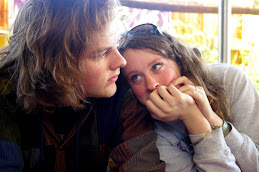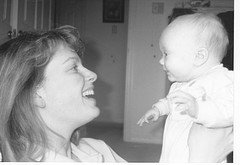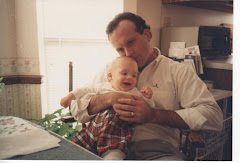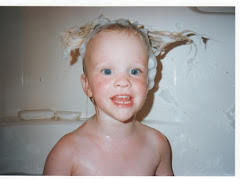The most recent post about my broadcasting students' term papers reminded my old friend Dave Foster of an intern we had at the television station a few years back.
He attended Texas A&M, and of course was assigned to write a paper to sum up his internship.
At Dave's urging, I am posting the paper here in its entirety. The identity of the student will be protected, for reasons which will be obvious once you read his writing.
I can't believe he turned this in, but he did. I will say this is Hemingway compared to some of the papers turned into me last week. Just to be fair...many of my current student's efforts were excellent. So, without further prologue....the Texas A&M sports intern's paper:
--------------------------------------------------------------------------------
This summer, I had the opportunity of interning for the sports department at an NBC affiliate in Shreveport, Louisiana. Since I had just finished my freshman year, I figured that I wouldn't have much of a shot at getting an internship, but I wanted to put my name out there just in case I got lucky. Well, I was aware of the possibility because I had visited this particular station the prior summer and followed around the current intern. I then attempted to be the early bird getting the worm by emailing the station in early February about the internship before someone older and more deserving of the experience stepped up. Well, everything worked out for the best, and I've been enlightened upon three main points about the field that I was oblivious to before the internship. First, being a good speaker and an avid sports fan does not mean you're set for success. Second, I was introduced to the basics behind editing tapes, highlights, satellite feeds, and scripting what's going on air. Third, you have to start in a totally different medium of broadcast before embarking into sports.
Initially, just because you might be a smooth talking Tom Cruise face-double that watches ESPN's Sportscenter every night doesn't mean you're going to step into this business and bank seven figures. That would be like someone who can pass algebra and sketch a 3-D box going to an architecture firm expecting to draw up a blueprint for the new Twin Towers. In May, that's how my brain was wired. Well, on my first day, after being showed everything in the studio and told about their daily routine, yada yada yada, I began to realize that there was more to it than just showing up for the six o'clock news and saying, "The Braves beat the Dodgers today!" You've got to have extreme patience in learning the field of broadcast, not just sports. This includes knowledge of the equipment, station, and area you're communicating with. For example, ESPN covers all sports and scores across the country because it's a nationally broadcasted network. But, if you're in an area like Shreveport, you can't spend two of your three minutes giving scores on water polo games at a YMCA in Lansing, Michigan. Then you're going to get so much hate email from the locals that you'll look forward to that XXX junk mail. You have to totally let your personal interests be cast aside. It's very important to know your demographic area's interest meaning what particular teams and sports they watch the most, and if anything local, no matter how big or small is happening, you gotta stress it like Mr. Rodgers on playing nice. Even bigger, you have to worship homegrown talent like Michael Jackson after Macaulay Culkin. For instance, I have a large interest in the Tour de France bicycle race in which a Texan, Lance Armstrong, is going for his fifth consecutive title. If I had the choice, I would go into great detail about how hard his struggle has been, his training, how monumental it is, and my viewers would want my head because they turned on the television wanting to know if their local golfer is in the top 100 of the tournament he's playing in. To add to that, until you're Joe Sports at ESPN or CBS, you don't get jack done for you. You have to write everything you say, edit what's going on the air when you're talking, provide all necessary information to the producers, put base on your own zits, clip your own nose hairs, and iron your own clothes. I think the point has been taken, so to wrap things up, you need to have an extensive knowledge of the broadcast field, a precise idea of your particular audience's needs, and the discipline to know when to separate your personal desires for the good of the station and your audience.
As mentioned earlier, don't think you can get a maid and a gopher just because you're on television. People like Troy Aikman and Deion Sanders aren't getting to work five hours ahead of time to edit their highlights or type scripts, they just show up to talk and look pretty so the ratings will top Fear Factor's. If either of those guys walked into a local station, they wouldn't be qualified enough in the real business to turn the television to the right station. But those star athletes are the lucky exceptions. I couldn't be hired by a station right now ready to go to work, but I have a roundabout idea of everything that needs to be done before showtime. First, I was shown how local stations subscribe to satellite feeds from national bases. I was at an NBC affiliate, but the station didn't subscribe just to NBC. They have satellite feeds flowing in all day from NBC as well as CNN and CBS. You never know, another network might provide last- minute, needed information before your base network, or package a story in a more precise, creative way. I was instructed how to go on a computer, look at a list of highlights compiled by a certain network, and load a highlight from that computer onto a tape. I was then shown how to take those certain tapes, cut out the garbage, meaning dull moments, corny statements, etc., and sequence things logically into a way that would look nice on air. On a side note, I caught on to editing and cutting tapes like a one-legged man learning to ride a bike. You have to take one tape filled with what you just loaded, cut it the way you want it, and put it onto another tape that's going to be used for the air. It sounds easy, but so does shooting a monkey into outer space. Furthermore, after we had gone to a site somewhere and taped a game or recorded a whole game on television and we only wanted twenty seconds to talk about it on air, I was educated about a time code method of recording that enables you to get exactly where you need on the tapes. This way, you don't have to fast-forward or rewind ‘til the cows come home and donate their bodies to the Atkins diet. Lastly, I was introduced to the software they use to type what's going to be said on air. This is used for the monitors that are going to be read while broadcasting, to read over the air when the viewer is seeing a highlight, and for those at home, such as the hearing impaired, who use the show caption mode on their television to read what is being said.
Finally, you can't just jump into sports straight out of college. It's not every day that the job of a sports anchor is open so you can't expect to shake hands with the dean, get your degree, and go to work. You're advised to start out as a news reporter so that you can get quality experience in using your on-air voice and posture, putting together a short, to the point news package, and learning the lifestyle that goes with working at a news station. Plus, unless you get very lucky or your dad's Bill Sportsguy and you're Bill W. Sportsguy, you have to start in the smallest market possible. We're talking about getting a map and a magnifying glass, finding the smallest place possible and starting by making coffee and buying donuts. It's tough, but it's a competitive business and you've got to start at the bottom like every other profession. Plus you've got to be a really sharp, quick-witted writer to make progress and compete with the big boys.
All in all, the internship has been a great experience. I've learned that you've got to have much more in you than just good looks and sports knowledge, that many things that go behind putting three minutes of sports on the air, and that you're not going to be able to leap out of college onto the sports desk. Right now, I'm just a kid drenched behind the ears, but I plan to dry them off in time to one day have the 11 o'clock Sportscenter spot.
Tuesday, December 11, 2007
The Amazing Intern Term Paper
Posted by
Darrell
at
12/11/2007
![]()
![]()
Subscribe to:
Post Comments (Atom)














3 comments:
Wow. Where to start?
First of, who told this guy shooting a monkey into space was easy? Trust me, it's no picnic.
Also, I got my maid and gopher on my first day of work. I don't know what you guys told him.
Gee, I never knew that Cows volunteered their bodies for the Adkins diet....
"drenched behind the ears"?? More resting with the Titanic.....
Thanks for the giggle, Daddy D
I've read this before, and it still makes me laugh. I think I actually remember which one this was, too.
Post a Comment